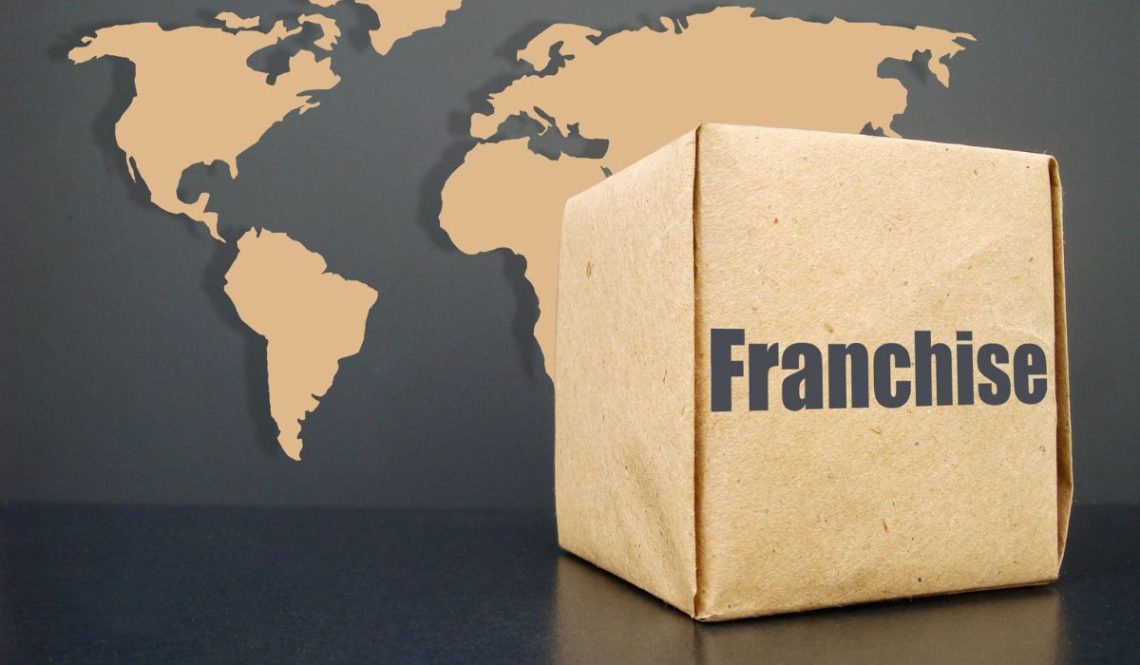
Can A Franchisee Sue A Franchisor | SkillsAndTech
Dipping your toes into the world of franchising is a huge commitment, but it can be an incredibly rewarding experience.
As with any business venture, there may come times when legal action needs to be taken, and you need to know your rights as a franchisee. One such situation could involve suing your franchisor.
See Also: Adani Wilmar Distributorship
The first question that comes up when considering a possible lawsuit is: can a franchisee actually sue their franchisor? The answer, in most cases, is yes.
A franchisee can take legal action against the franchisor if they believe they have been wronged or misled in some way.
Read on to learn more about when a franchisee can sue their franchisor and what steps they should take if they decide to pursue legal action.
Table of Contents
Can A Franchisee Sue A Franchisor?
See Also: Croma Franchise
Yes, franchisees can sue franchisors for several things, including failure to disclose operational costs and opening an excessive number of franchises in a certain region.
Some of the main reasons a franchisee might sue their franchisor include the following:
1. Breach Of Contract
Breach of contract is a common reason for a franchisee to sue their franchisor.
A breach of contract occurs when one party does not fulfill their obligations to the other according to the agreement that was signed.
See Also: Amaron Battery Dealership
This can include failing to provide promised services, agreeing to something that goes against the original agreement, or providing misleading information.
For example, in some cases, a franchisor may fail to keep up with its responsibility of supplying quality products and services as outlined in the contract.
In addition, a franchisor may fail to follow through on promises made in terms of training and support to the franchisee.
In any case, if the franchisee believes that the franchisor has violated the agreement in some way, they may decide to pursue legal action.
See Also: The Failure & Success Rate Of A Franchise
A breach of contract lawsuit requires evidence that there was an enforceable agreement between both parties that was violated by one side and caused harm to the other.
2. Territory And Encroachment Disputes
Another common reason for a franchisee to sue their franchisor is an encroachment dispute.
This type of lawsuit typically occurs when the franchisor opens a competing franchise in the same geographic area as an existing franchise in violation of the contract agreement.
See Also: Uptown Cheapskate Franchise
In some cases, the franchisor may open too many franchises within a certain radius or enter into agreements with other franchisees that take away from the original franchisee’s profits. If this occurs, it can lead to a dispute between the two parties.
If a franchisee believes their franchisor has encroached on their territory, they can take legal action in order to resolve the situation.
3. Failure To Disclose Operational Costs
See Also: What Do Franchisees Typically Have To Pay To The Franchisor
The franchise agreement should include all of the operational costs associated with running the business, including costs for staff, supplies, and any other expenses.
If the franchisor fails to disclose any of these costs or provides inaccurate information about them, it can lead to a lawsuit.
In this situation, the franchisee may have legal recourse against their franchisor if they are not able to cover the operational costs due to inaccurate information. The franchisee may be able to recover lost profits or other damages.
See Also: Ductz Franchise
4. Franchisor Fraud
Franchisor fraud occurs when the franchisor knowingly misrepresents their franchise opportunities or fails to provide important information that would affect the decision of potential franchisees.
This type of fraudulent activity can have serious financial repercussions for both parties involved.
Unfortunately, it is not uncommon for a franchisor to provide false or misleading information to a potential franchisee in order to sell more franchises.
If the franchisee finds out that they were misled or provided with false information, they may decide to take legal action against their franchisor.
See Also: How to Sell on Naaptol
5. Liquidated Damages
In certain cases, the franchise agreement may include a liquidated damages clause.
This is essentially an agreement between the franchisor and the franchisee that outlines any financial losses that must be paid if either party breaches the contract.
If a franchisor fails to fulfill its end of the agreement or provides false information, the franchisee may be able to recover any losses due to the liquidated damages clause in the agreement.
How Soon Should You File A Lawsuit Against Your Franchisor?
There are several options that can benefit both the franchisee and the franchisor when it comes to settling a dispute.
See Also: Which Is More Profitable Franchise vs Independent Restaurants? Which Is Better
However, if the situation is not resolved through alternative means, the franchisee may decide to pursue legal action.
If you’re a disgruntled franchisee, you can choose between a lawsuit and ADR (Alternative Dispute Resolution).
ADR typically involves negotiation or mediation between the two parties and is usually the less expensive and faster option.
However, if negotiations are unsuccessful or the franchisor fails to comply with an agreement, a lawsuit may be necessary.
Ideally, you should file a lawsuit as soon as possible. The franchise agreement typically includes a statute of limitations, which is the amount of time you have to file a legal action.
See Also: How to Sell on Shopclues
If you wait too long, you may be unable to pursue legal action against your franchisor.
Most franchise agreements also contain clauses requiring arbitration or mediation. If you decide to pursue legal action, it is important to abide by the agreement’s provisions.
This will ensure that your case gets a fair hearing and that any damages awarded are fair.
How Can You Sue A Franchisor?
See Also: How to Become a Paytm Seller
If you believe that your franchisor has breached the franchise agreement or committed fraud, you may decide to sue them.
To do this, you must first file a complaint with the court in which you want to pursue legal action.
In order to win your case, you will need to prove that either the franchisor failed to fulfill its obligations under the contract or that it violated any of its statutory duties.
You will also need to prove any damages resulting from these actions. This can include lost profits, loss of reputation, or other financial losses due to breach or fraud.
See Also: Are Franchise Restaurants Really Profitable
Consider hiring a lawyer who specializes in franchise law if your case is complex and involves multiple parties.
They can help advise you on the next steps you should take and ensure that your rights are protected.
What Are The Risks Of Suing Your Franchisor?
Suing your franchisor is not an easy step to take, and you should be aware of the risks associated before doing so.
Here are some potential risks you should consider:
See Also: Franchise Vs Dealership: What’s the Difference & What to choose
1. Limitation Periods
These are the time limits that a franchisee must abide by in order to exercise their legal right to file claims against the franchisor.
The organization or the institution will choose the duration of the time. In most cases, it falls somewhere between six months and one year.
See Also: Franchise Vs. Startup: Which One Is Better
The time limit is determined by taking into account the kind of claim as well as the state law that is relevant.
This time restriction is usually set by the franchisors at one year, which means that legal action can be taken within one year of the day the improper behavior occurred.
The franchisee will be subject to legal repercussions if they violate these limitation periods.
In light of this, the franchisee should make sure that they are aware of the relevant laws in their state and act accordingly.
2. Counterclaims
See Also: Samosa Singh Franchise
When a franchisee brings claims against the franchisor, they often forget that the franchisor has the right to bring counterclaims against the franchisee.
Additionally, franchisees need to be aware that once a lawsuit has been initiated, the procedures cannot be halted in any way.
Counterclaims are a sort of leverage that franchisors will use in any proceeding, including litigation and arbitration.
The agreement is also an important factor in the event that litigation or arbitration is necessary.
See Also: Cyclebar Franchise
Since the lawyer representing the franchisor drafts the agreement, most of the terms are crafted to give the franchisor possible protection while also giving the franchisor more bargaining power over the franchisee.
Even when everything has been done in compliance with the agreement, the franchisor can still impose counterclaims in court.
3. Expensive Arbitrations
See Also: Indy Clover Franchise
When franchisees decide to bring a case against their franchisor, they must be aware of the costs related to expensive arbitration.
While some franchises may provide clear and fair terms for settlement procedures in certain cases, the cost of arbitration is often high and can be prohibitive for most franchisees.
The price of arbitration depends on various factors, such as time spent by the experts involved, travel expenses, filing fees, and other costs associated with the process.
See Also: Wienerschnitzel Franchise
The total cost of justice can be huge for both parties and, as a result, dissuade franchisees from exercising their legal rights.
Bottom Line
A franchisee can sue their franchisor if they feel that their rights have been violated according to the franchise agreement or the law.
This could be in the form of wrongful termination, breach of contract, misrepresentations or fraud, and other wrongful acts.
Make sure to consider the risks associated with suing your franchisor before taking legal action.
It is advisable to speak to a lawyer and to make sure you have all the evidence needed for success before initiating any proceedings.






4 Comments
Pingback:
Pingback:
Pingback:
Pingback: